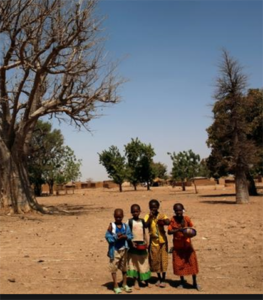Burkina Faso – just one more humanitarian crisis
The West African nation of Burkina Faso has become the latest to become the scene of the now all-too-familiar term ‘humanitarian crisis’.
Attacks by Islamist militants, military operations, and waves of inter-communal violence have left up to a hundred thousand people dead and tens of thousands displaced since January.
Indigenous militant groups, as well as extremists linked to al-Qaeda and Islamic State group, had been in the country’s arid north since 2016, but have now expanded into new areas in eastern and south west Burkina Faso – also threatening the stability of neighbours including Ghana, Benin, Togo, and Ivory Coast.
The militants have launched almost daily attacks on Burkina Faso’s embattled security forces, which have responded by allegedly committing numerous abuses against civilians during counter-terrorism operations, including mass summary executions and arbitrary arrests.
As the land-locked nation struggles to protect civilians, a growing number of ‘self-defence’ militias have emerged heightening tensions in a country once considered a beacon of coexistence and tolerance in West Africa.
The United Nations says the situation in Burkina Faso is unprecedented for a country that has never had to deal with such massive displacement.
The crisis is part of a wave of violence currently sweeping across Africa’s Sahel – a belt of land beneath the Sahara desert – that is experiencing an increase in violent extremism despite the presence of UN peacekeepers and Western and regional forces.
In Burkina Faso, more than two thirds of those displaced have been uprooted since the start of the year, the equivalent of roughly 1,000 people every day, according to UN figures.
The UN predicts that if the current chaos continues the number of displaced people could reach more than 380,000 by December.
Aid groups say their ability to respond is being hampered by insecurity, poor access to affected communities, and a lack of money and resources for a crisis that nobody really expected.
Many hoped that Burkina Faso would enjoy a more peaceful future after a popular revolution in 2014 ousted president Blaise Compaore, who ruled the country for 27 years.
Instead, his fall created a security vacuum that was quickly exploited by Islamist groups, including al-Qaeda affiliates present in neighbouring Mali.
Many traumatised villagers, who have been targeted by militants, have moved into a military-protected camps for displaced persons.
The NGO Human Rights Watch says the majority of recent killings have affected members of the Bella, Foulse, and Mossi groups.
This has increased ethnic tensions between these groups and members of Burkina Faso’s cattle-herding Fulani community, which has been targeted for recruitment by the militants.
And violence against the Fulani community is also being perpetrated by Burkina Faso’s security forces, who suspect them of collaborating with the jihadists.
Between September 2018 and February this year, Human Rights Watch said it documented the detention and execution of 116 men and adolescents by security forces in the north. Nearly all of the victims were ethnic Fulani.
Burkina Faso is also prone to droughts, floods, and food insecurity because of its geography.
And as well as fleeing their homes, around 119,000 students are now out of school following attacks or threats by Islamists, and 250,000 people are without access to healthcare services as medical staff have fled their posts.
Aid agencies say they are scaling up their efforts but are struggling to attract attention and resources from donors.
A UN humanitarian response plan for 2019 identified 1.2 million people in need of aid and requested $100 million from donors. It is currently just 27 per cent funded.
Two camps have been set up by the government since January but the majority of displaced people are scattered across the countryside, many in places where aid workers say they are struggling to access due to insecurity.
Laurie Nowell
AMES Australia Senior Journalist












